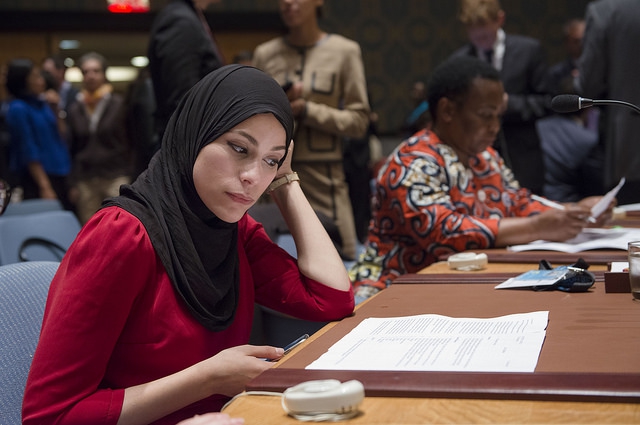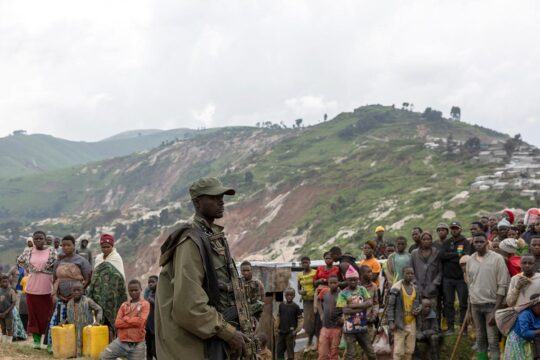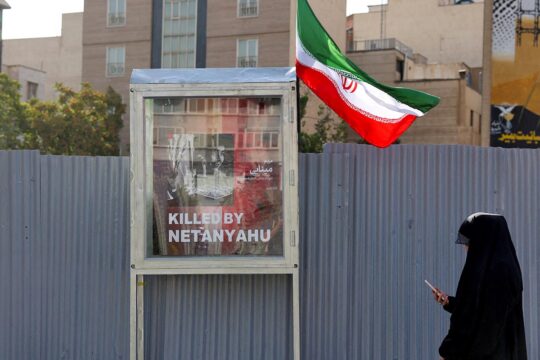October 31 marks exactly 15 years since the United Nations adopted Resolution 1325, which calls for the participation of women at all stages of peace processes. Fifteen years on, results on the ground seem meagre. In the Democratic Republic of Congo, for example, women’s rights activist Julienne Lusenge says the Resolution’s adoption gave Congolese women a lot of hope. “But unfortunately,” she says, “15 years later we are still subjected to violence, women throughout the world, but especially in the DRC. (…) And at the end of the day, the Resolution has not helped women to live in peace, it has not helped make the places where women live better, it has not brought women into peace processes.”
This assessment is reflected in a recent report by UN Women on the implementation of Resolution 1325. According to this report, "though the participation of women in formal peace processes has been inching up, a study of 31 major peace processes between 1992 and 2011 revealed that only nine per cent of negotiators were women—a negligible figure given the issues that are involved". It also says that "despite a great deal of effort by the international community to encourage Member States to have inclusive processes to formulate national action plans on women, peace and security, only 54 countries have formulated such action plans. Many of these plans are focused on process, with neither mechanisms for accountability nor budgets available for real implementation".
Julienne Lusenge is director of the Fund for Congolese Women, and President of Congolese NGO Sofepadi. She addressed the UN Security Council also on behalf of the NGO Working Group on Women, Peace and Security. During a recent visit to Geneva, Julienne spoke to JusticeInfo.Net.
Julienne Lusenge: In the DRC there have been various wars, there are still various armed groups which continue to threaten, kill and massacre. So the Resolution has not helped women (…) It’s good on paper, but when it comes to drawing up the agenda for peace processes and women come to demand their rights as laid down in the Resolution, they are not really welcome.
JusticeInfo.Net: It’s hardly surprising that militiamen and men of politics don’t want women participating. But what can be done to change the situation?
JL: What the UN should do is make our presence compulsory. So in every peace process there would be three parties, the women and the other two actors. And the UN should put that on its agenda from the start. And whether it is the armed groups or the politicians who are seeming to say ‘we don’t want the women, it’s a difficult situation, it needs to be managed by men’, in reality it’s not true. Because outside the official channels, some of them send women to mediate on their behalf, to connect them with the belligerents. So I think they must agree to let us participate officially in the various peace processes.
JusticeInfo.Net: So you are in favour of a sort of quota, an obligatory delegation of women?
JL: When it comes to peace processes, I say yes, because otherwise there won’t be any women. But that doesn’t mean the politicians should vote for or select a group of women to sit at the negotiating table. It is us, the women at the grassroots, who should elect or select our delegates. That is our principle. We don’t want people designated from above, we want people who are chosen by the grassroots on the basis of their experience.
JusticeInfo.Net: In your speech to the United Nations, I believe you also had something to say about justice?
JL: Yes, because for me, justice builds peace and peace is nourished by justice. It is important that we can work on criminal justice but also for transitional justice so that people can know the truth. We have asked for help to set up specialized mixed Chambers to try those crimes that the ICC is not dealing with, and also to set up a Truth and Reconciliation Commission to help people know the truth about all the disappeared people, the many people who have been killed in our country. That is very important. But we are also demanding real reform of the national justice system. Those working in it need to be helped, trained, equipped, have better working conditions. And prisons need to be built. Because if that doesn’t happen, the situation will not improve.
JusticeInfo.Net: Are there other things you think the UN should do to ensure that the Resolution really produces results?
JL: Yes. We are calling on the UN to rethink the way it puts peacekeeping missions together, because in the DRC the Mission has been there for all these years and yet all these bandits, these armed groups continue to kill and to rape women. So we want the UN to reflect on how to turn the Resolution into reality and what it can do to ensure that peacekeeping missions really bring peace. And then we want answers quickly, so that we can have peace. Another thing is funding support for organizations on the ground. People say they want to work with women’s groups but the States maintain their procedures. Here in Geneva I cannot get funding because I represent a local Congolese organization. But if I was a Geneva-based organization I would get funding. There is money here, but no-one will give it to me because we are a Congolese organization. People say one thing and do another, it’s like the language of the deaf. We are committed, we are determined, we have the energy. But we want the means to work properly in a sustainable way, to change behaviour, mentalities and traditions so that our children may one day enjoy human rights in the same way as other women in the world.







